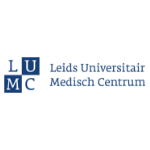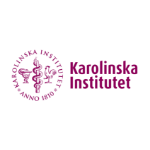Personalised prevention and early treatment of rheumatoid arthritis
The challenge
Rheumatoid arthritis (RA) is a chronic and debilitating condition that affects over five million people in Europe.[1] RA requires a lifelong and expensive treatment, costing Europe approximately 45 billion euros each year.[2] Patients with the condition often experience pain and comorbidities that influence their daily social and working lives.
Prevention and early curative treatment for RA is the ultimate solution for patients and society. But the current organisation of healthcare in Europe rarely enables prevention or adequate early treatment.
The solution
DigiPrevent takes a realistic and feasible approach to personalised prevention in RA, combined with much earlier treatment if arthritis ensues. The main expected improvement will be for individuals at risk and those with early signs of arthritis. They will receive prompt treatment that may lead to drug-free remission.
The solution includes two components. The first is a new digital screening procedure, Rheumatic. This is a web-based tool developed through the EIT Health-supported project, JPAST. It estimates the risk for disease development based on patients’ own description of their musculoskeletal problems using evidence-based algorithms.
The second is a blood-based diagnostic tool, Rheuma-multiplex. These combined multiplex antibody and genetics tests can define the specific risk for RA for individuals who have passed a certain RA risk level score in Rheumatic.
Expected impact
The DigiPrevent team will work with patients and patient organisations, healthcare providers and payors to validate and implement the system and tools for transformation of healthcare, using a stepwise implementation strategy.
Their aim is to develop reimbursement models, with payment from payors striving to implement prevention in their reimbursement systems. In parallel, DigiPrevent aims to receive a CE marking for their digital tools and will work with regulators to generate of guidelines for therapeutic development aimed at prevention of RA.
DigiPrevent calculates that there is a potential for reduction of cases of chronic RA by an estimate of 20-50%, based on today’s knowledge of modifiable lifestyle factors and effects of existing therapies in individuals at very high risk of developing RA.[3][4] This has the potential to save €9 billion annually if the team’s solutions are implemented all over Europe (the estimation of total current yearly costs for RA in Europe is €45 billion).[5][6]
External Partners
- Coöperatie VGZ
- Elsa Science
- Stichting ReumaNederland
References
[1] Neovius, M., et. al. (2011). Nationwide prevalence of rheumatoid arthritis and penetration of disease-modifying drugs in Sweden. Annals of the Rheumatic Diseases. 70(4):624-629.
[2] Galloway, J., et. al. (2020). The impact of disease severity and duration on cost, early retirement and ability to work in rheumatoid arthritis in Europe: an economic modelling study. Rheumatology Advances in Practice, 4(2).
[3] Zaccardelli, A., et al. (2019). Potential of Lifestyle Changes for Reducing the Risk of Developing Rheumatoid Arthritis: Is an Ounce of Prevention Worth a Pound of Cure? Clinical Therapeutics. 41(7):1323–1345. 1
[4] Rech, J., et al. (2021). Abatacept Reverses Subclinical Arthritis in Patients with High-risk to Develop Rheumatoid Arthritis -results from the Randomised, Placebo-controlled ARIAA Study in RA-at Risk Patients. Arthritis Rheumatol. 73(10).
[5] Galloway J., et al. (2020). The impact of disease severity and duration on cost, early retirement and ability to work in rheumatoid arthritis in Europe: an economic modelling study. Rheumatology Advances in Practice. 4(2).
[6] Eriksson, J., et al. (2015). Costs for hospital care, drugs and lost work days in incident and prevalent rheumatoid arthritis: how large, and how are they distributed? Annals of the Rheumatic Diseases. 74(4):648-54.
Members

Partner classification: Education, Research, Hospital / University Hospital
The mission of the LUMC is ‘to be an innovator improving both healthcare and population health’. LUMC is a university medical center for research, education and patient care with a high quality profile and a strong scientific orientation. It has a unique research practice, ranging from pure fundamental medical research to applied clinical research. LUMC wants to perform ground-breaking innovation. Researchers, educators and healthcare providers at LUMC work together around 3 societal outreach topics, Oncology, Regenerative Medicine and Population Health. Furthermore 10 themes for innovation are defined Academic Pharma, Neuro Science, Cancer, (auto)Immunity, Cell, Tissue & organ, Cardio-Vascular, Genetics, infection, Life course and prevention and Lifestyle. https://strategie.lumc.nl/en/
Leids Universitair Medisch Centrum
Leids Universitair Medisch Centrum, Albinusdreef 2, 2333 ZA Leiden, Netherlands
Key Activities in Research and Developement
Life Sciences, Clinical research
Key Activities in Social Innovation
Healthcare provision
Key Activities in Business Creation
Incubation, Technology Transfer


CLC/InnoStars: Scandinavia
Partner classification: Education, Research
Karolinska Institutet is one of the world's leading medical Universities. Our mission is to contribute to the improvement of human health through research and education. Our research covers the entire medical field, from basic molecular biological research, to clinical epidemiology and nursing science. Since 1901 the Nobel Assembly at Karolinska Institutet has selected the Nobel laureates in Physiology or Medicine. With our close relationship to the clinical world, a well-established infrastructure, a unique innovation system and financial stability, Karolinska Institutet has excellent prerequisites for sustaining high-quality research and education.
Key Activities in Corporate Innovation
Pharma, Med Tech, Diagnostics, Imaging, Nutrition
Key Activities in Social Innovation
Healthcare provision
Key Activities in Business Creation
Incubation, Technology Transfer, Business coaching, Testing & Validation
Key Activities in Education
Entrepreneurship training, Medical faculties, Healthcare professional education/training


CLC/InnoStars: Scandinavia
Partner classification: Business
As the Immuno Diagnostic experts within Thermo Fisher Scientific, we develop, manufacture and market complete blood test systems to support clinical diagnosis and monitoring of allergy, asthma and autoimmune diseases.
Thermo Fisher Scientific
Thermo Fisher Scientific, Rapsgatan 7, 754 50 Uppsala, Sweden
Key Activities in Corporate Innovation
Pharma, Diagnostics
Key Activities in Social Innovation
Healthcare provision
Key Activities in Business Creation
Testing & Validation
Key Activities in Education
Medical faculties, Healthcare professional education/training


CLC/InnoStars: Scandinavia
Partner classification: Municipality / City, Hospital / University Hospital
Region Stockholm is one of Europe's largest healthcare providers, offering everything from telephone advice about self-care to advanced specialist care at the university hospital.
Key Activities in Corporate Innovation
Pharma, Med Tech, ICT, Diagnostics, Imaging, Nutrition
Key Activities in Social Innovation
Healthcare provision, Payers
Key Activities in Business Creation
Testing & Validation
Key Activities in Education
Healthcare professional education/training
